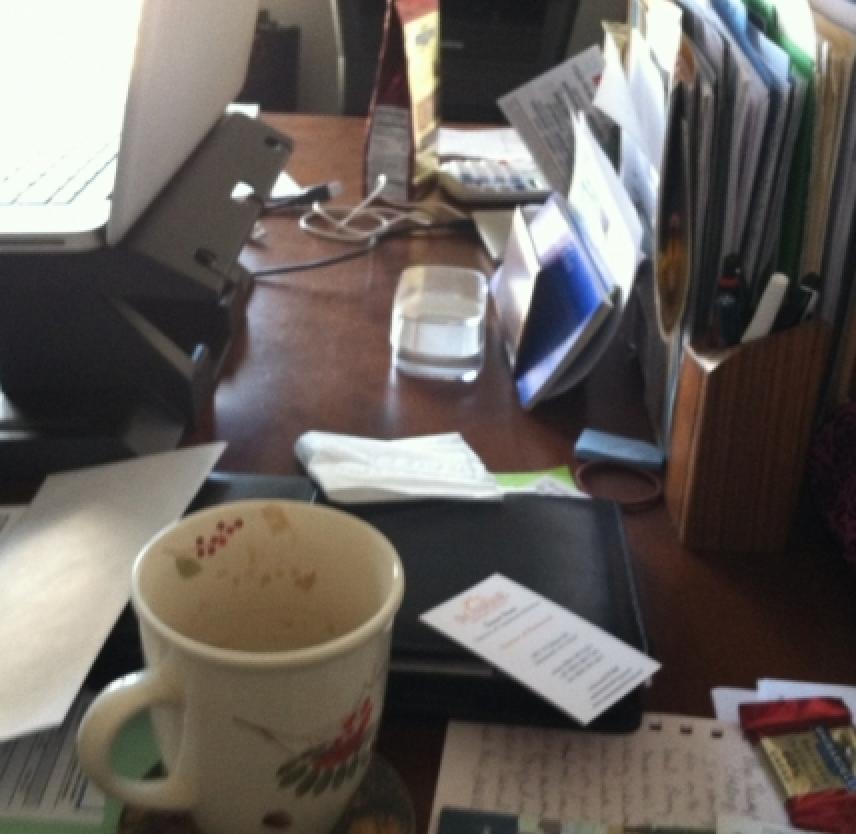
Before Hugh’s injury, I loved getting mail in my mailbox. Afterward, I dreaded adding another pile to the piles of mail that permanently resided on my desk, office floor, and living room table. When they were full, new stacks entered the kitchen. Stacks of papers, sorted into categories, remained for months. Back then, I didn’t know that the physical presence of those papers fueled my emotional angst, but I should have known. Just looking at them made my heart pound!
I just finished reading a wonderful short book called Rock Scissors Paper: Understanding How Environment Affects Your Performance on a Daily Basis by Debbie Bowie. I wish I had known then what I know now.
First, let me tell you about Debbie. She is a certified professional organizer with an MA in Art History and an MS in Counseling. She is certified in Essential Feng Shui and Black Hat Feng Shui, and most importantly, Debbie has been a caregiver for two members of her family. She understands the stress involved in trying to stay organized under pressure to a handle benefits from work, disability plans, insurance policies, legal documents, and the mountains of medical bills that pile up after a family member has sustained a TBI. Whew, just writing that is stressful!
What I didn’t know, or ever think about was how those piles of paper I walked past each day affected me. Each time I passed them, I punished myself. I should do something with that. I need to make that call. I have to pay that bill. Had I realized that creating a system to manage and move those papers (and throw some out) would relieve a good amount of daily tension, I would have done it in a heartbeat.
As Debbie says, “Everything in your space is energy. Everything. The quality of those energies has a profound effect on how you perform in that area.” Since I had papers stacked in nearly all of my downstairs rooms, no wonder I felt buried alive half the time.
According to Debbie, this is the cost of clutter:
- It creates stress– It can signal to you that you should be doing something about it. If you don’t have the time, you will feel stressed.
- It creates judgment– What’s wrong with me? I can’t seem to deal with all this stuff.
- It depletes energy - Clutter naturally draws your eyes to it and engages your thoughts and feelings. That takes energy, and negative thoughts and feelings take even more energy.
- It creates an unhealthy environment– Clutter is a haven for dust, dirt, mold, and bugs.
- It costs money– Clutter can result in lost bills, late fees, and bank penalties.
By clearing clutter and organizing your home after a crisis, you will feel more in control of your life, be able to find important papers quickly, and save money because your financial bills and papers will be easy to find. But the biggest bonus of making this effort is that you won’t feel the stress associated with piles of negative energy.

Comments (7)
Please remember, we are not able to give medical or legal advice. If you have medical concerns, please consult your doctor. All posted comments are the views and opinions of the poster only.
Anonymous replied on Permalink
Anonymous replied on Permalink
Anonymous replied on Permalink
Anonymous replied on Permalink
Anonymous replied on Permalink
Anonymous replied on Permalink
Anonymous replied on Permalink